Monthly Journal
September 2022
International Press Review
The most relevant events of the area through international sources
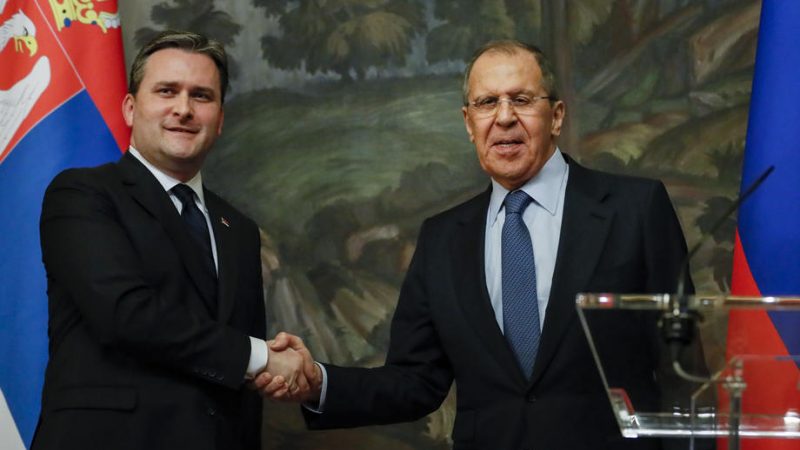
Serbia signs with Moscow controversial ‘coordination’ agreement on foreign policy
Euractiv
On the side-lines of the United Nations General Assembly in New York, Serbia and Russia signed an agreement for mutual “consultations” on foreign policy issues. Although Belgrade is a candidate for EU membership, the government maintains strong ties with Russia. While Serbia has repeatedly stated that it supports Ukraine’s territorial integrity, the government has refused to join Western sanctions against Moscow. The agreement was harshly criticised by Serbian opposition, the United States, and the European Union, with the European Parliament inclined to approve a resolution requesting that the Commission and the European Council halt accession negotiations with Serbia until the Balkan country fully aligns with the EU foreign policy.
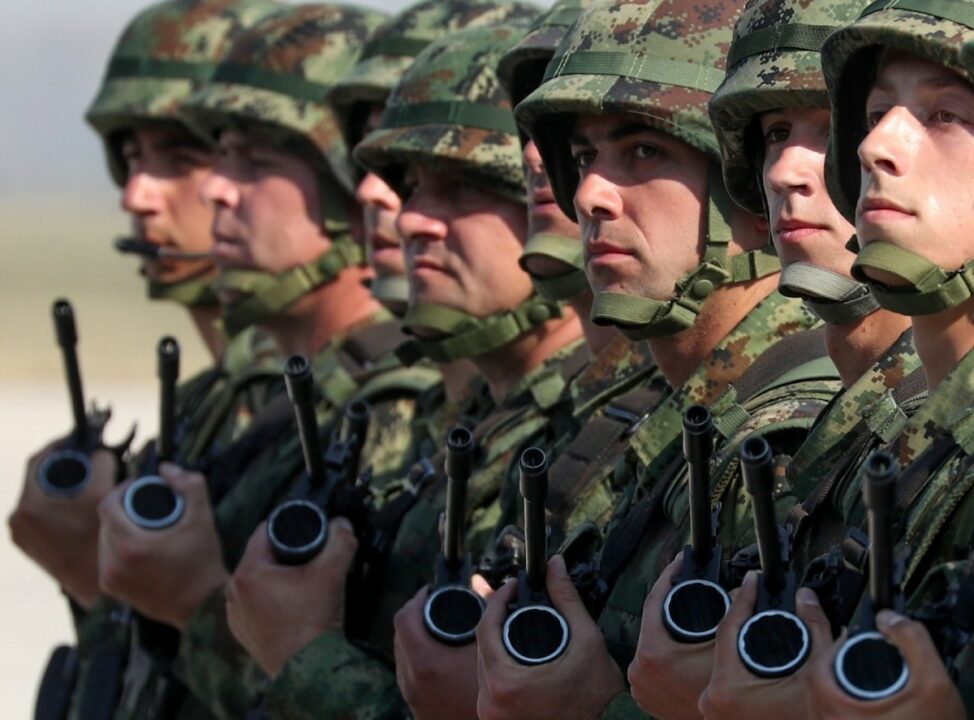
The US re-engaging in the Balkans amidst the war in Ukraine
Asia Time
The US Senate Foreign Relations Committee (SFRC) introduced with bipartisan support new legislation entitled “Western Balkans Democracy and Prosperity Act”, which seeks to deepen American regional involvement. The Act’s primary goal is to increase US trade and investments with the Western Balkans, particularly in ways that “support the countries’ expeditious accession to the EU and NATO.” It also intends to counter “Putin’s obvious ambitions to spread malign influence across Eastern Europe.”
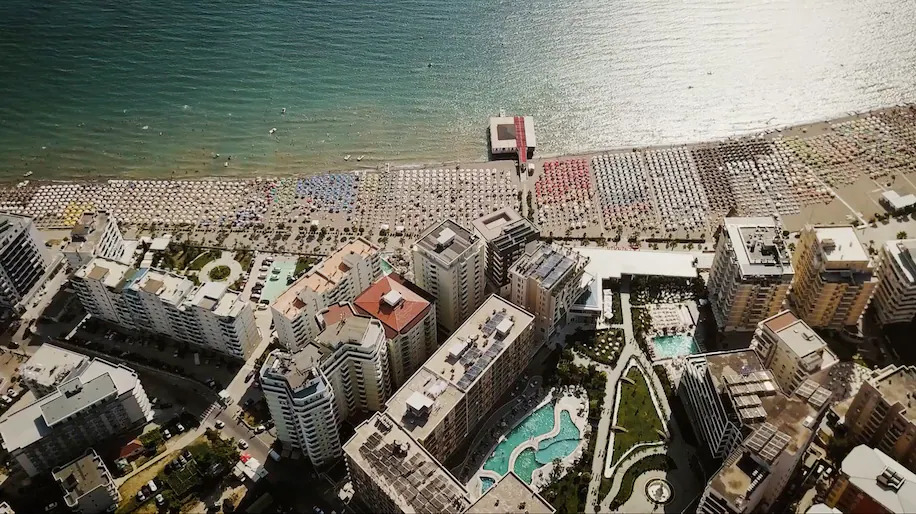
Albania cut diplomatic ties with Iran after a cyberattack
Washington Post
Albania, a NATO member, severed diplomatic relations with Iran, accusing Tehran of being behind a massive cyberattack that destroyed government data and shut down services. Several countries and NATO expressed their solidarity with Tirana on this issue. The cyberattack was carried out by a “likely Iranian threat actor,” according to cybersecurity firm Mandiant. Albania suspects Iran intended to undermine national security and punish the country for hosting thousands of members of the Iranian dissident group Mujahedeen-e-Khalq, or MEK. MEK members arrived in Albania after US pressures on Tirana.
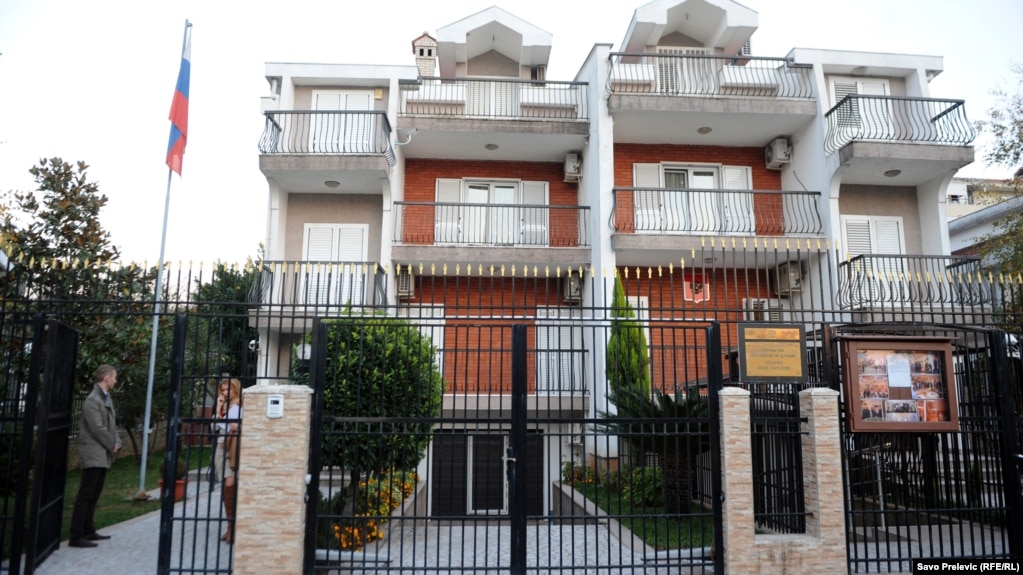
Montenegro expels Russian diplomats, Moscow closes consulate
Radio Free Europe
During an investigation into alleged spying, Montenegro ordered the expulsion of six Russian diplomats who worked for the Russian Embassy in Podgorica and of several other people. The six were declared personae non-gratae. Moscow retaliated by closing its consulate in Montenegro “indefinitely,” according to a statement from the Russian Embassy. Montenegro joined NATO in 2017 and adopted Western sanctions against Kremlin following the Russian invasion of Ukraine.
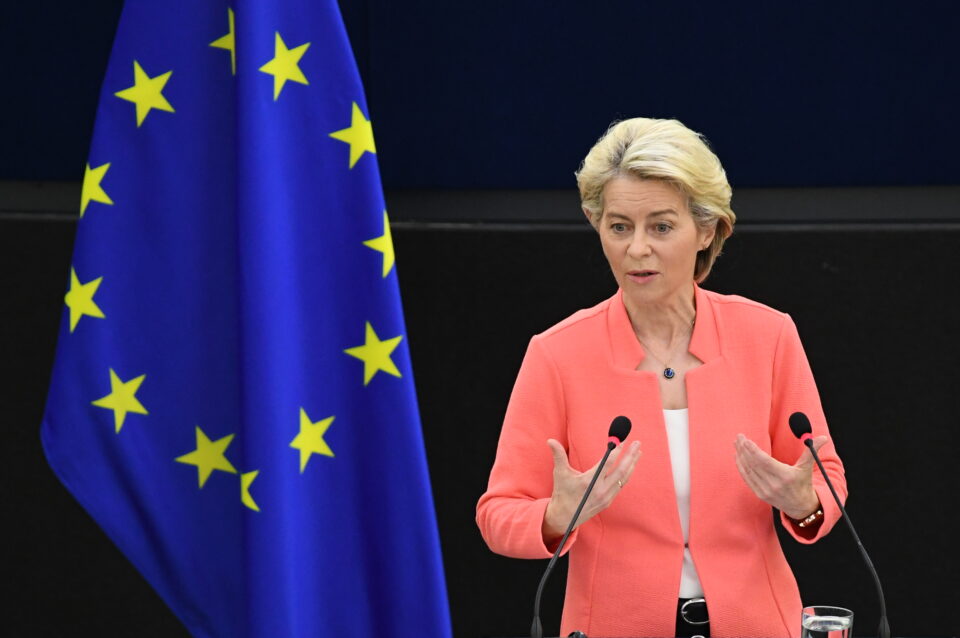
EU confirms European perspective of Balkans, Moldova, Georgia, Ukraine
European Western Balkans
Ursula von der Leyen, President of the European Commission, stated during a plenary session of the European Parliament that the EU wants to expand to the Balkans, but also to Georgia, Moldova, and Ukraine, without providing a timetable for the expansion. “I want the Western Balkans, Ukraine, Moldova, and Georgia people to know that they are part of our family, that their future is in our Union, and that our Union is incomplete without you!” Von der Leyen emphasized. She stated that the European Commission supports French President Emmanuel Macron’s proposal for a European political community.
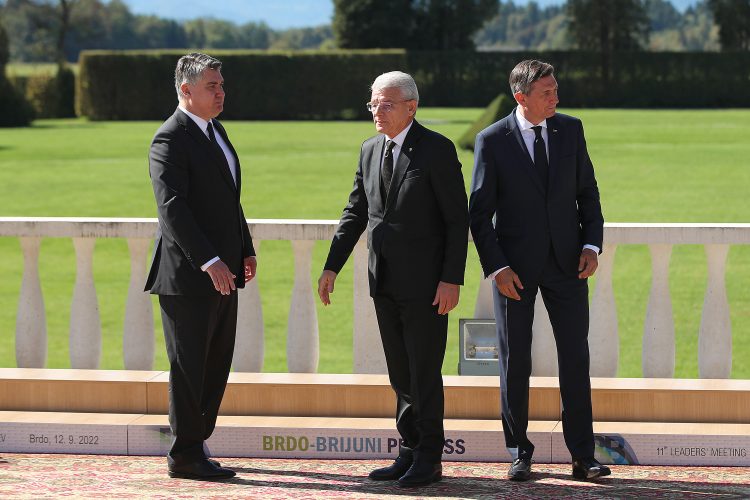
Division among the Balkan leaders impacts Brdo summit, no final declaration
N1
Regional leaders attending an important summit co-hosted by Slovenia and Croatia could not agree on the summit’s conclusions due to rising tensions between them. According to unofficial sources, Bosnia and Herzegovina, in particular, refused to accept Croatia’s position on the importance of “legitimate representation of the constituent peoples at all levels of government in Bosnia and Herzegovina.” Part of the Croatian political leadership is pushing for broader political representation of Bosnian Croats in Sarajevo.
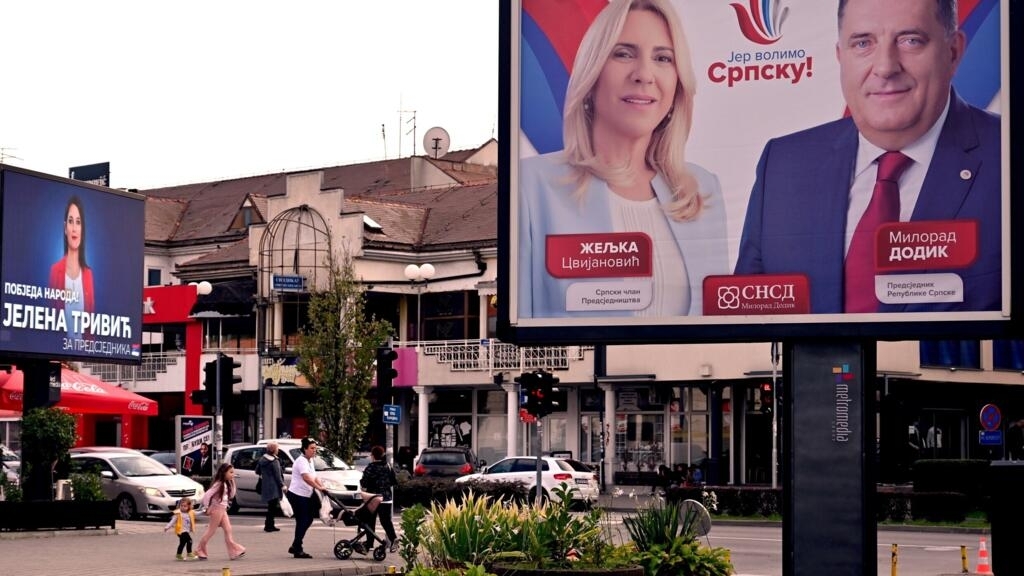
Bosnia heading to general elections amid growing tensions
France Press
Bosnia approached general elections scheduled on October 2 amid secession threats and fears of renewed political turmoil. Analysts predicted nationalist parties would win elections at many levels, including the party of pro-Russian Bosnian Serb leader Milorad Dodik, who met Putin just before the vote. Bakir Izetbegovic, the Bosniak Muslim president, is seeking a third term but faced stiff competition from a history professor Denis Becirovic. The Bosnian Croat party, HDZ, has been threatening to boycott the elections since the electoral reform attempts failed.
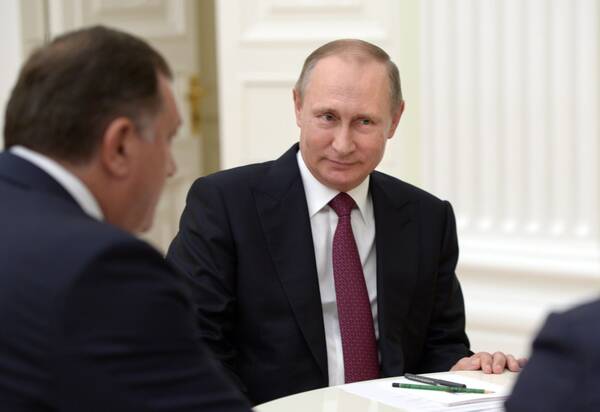
The US say Russia is secretly funding parties in Bosnia, Montenegro and Albania
ANSA-France Press
Since 2014, Russia has covertly sent $300 million to political parties and candidates in more than two dozen of countries, according to a declassified US intelligence assessment. US intelligence “estimates that these are minimum figures and that Russia likely transferred additional funds covertly,” an official said. The declassified report didn’t name countries. A source familiar with the findings said Russia spent $500,000 to back Albania’s centre-right opposition Democratic Party during the 2017 elections and funded parties or candidates in Bosnia and Montenegro.
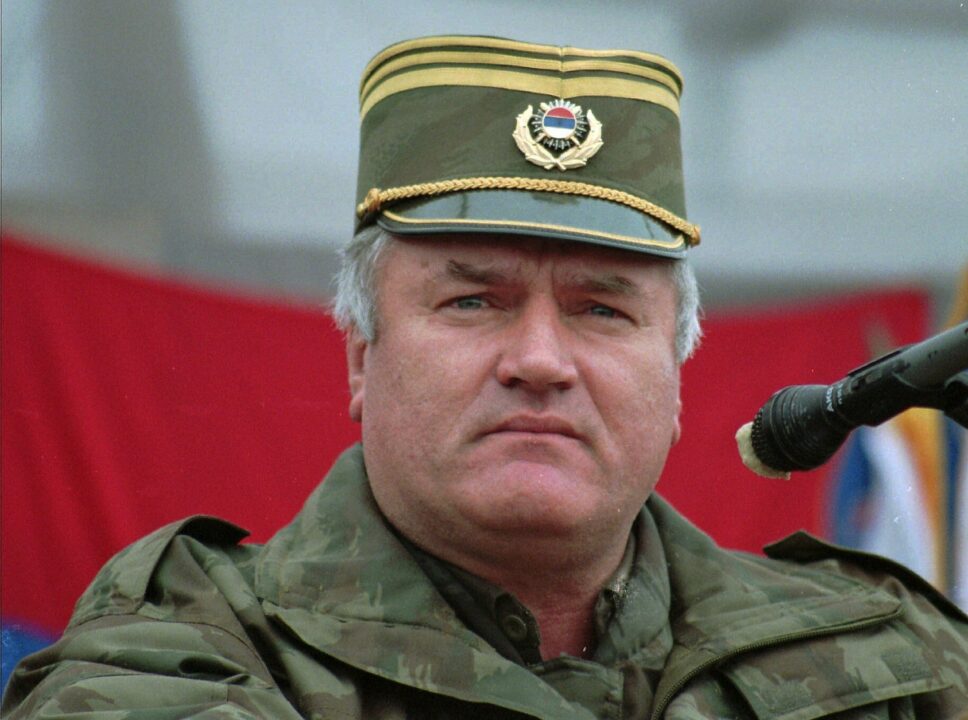
Moscow supports the early release of war criminal Mladic
MFA Russia
Russia supported the early release for health reasons of war criminal Ratko Mladic, sentenced to life in prison for murder, violation of the customs of war, deportation, inhumane transfer of population, terrorism, attacks on civilians, and genocide in Srebrenica. Due to the “rapid deterioration of his health,” Russia believes “it would be the right decision for the Residual Mechanism to release Ratko Mladic on humanitarian grounds,” the Russian Foreign Ministry said on Twitter.
The Insight Angle

Vuk Vuksanovic
Political analyst on Russia, China and the US foreign and security policies and risk consultant with specific experience in great power politics in several regions, including the Balkans, Turkey and the Middle East. He is currently Associate at LSE’s foreign policy think tank (LSE Ideas) and Senior Researcher at the Belgrade Centre for Security Policy.
Mr. Vuksanovic, France and Germany have appointed two special advisors to the Serbia-Kosovo dialogue, indicating that Paris and Berlin are now pushing for a resolution to the Kosovo issue. What options are now on the table, and do you believe Belgrade and Pristina will reach a final agreement by 2023?
Both Berlin and Paris are trying to re-assert European Union as a major player in the region through an attempt to re-energise the dialogue that has been blocked for quite some time. However, I remain sceptical that the EU has the leverage given the magnitude of the European political and strategic crisis. The EU’s main leverage was always enlargement, but everyone knows that EU membership is not a realistic prospect for the region. Therefore, neither Serbs nor Kosovo Albanians have an incentive to be cooperative. Instead, their respective leaderships can be provocative towards the other side for the sake of domestic popularity, as long as they do not instigate the level of violence that can provoke Western intervention. The two sides can play this game for the next ten years with this situation on the EU front.
Despite increasing Western pressures, Serbia tries to balance its foreign policy between the EU and Russia. How long will Belgrade be able to continue in this manner? And do you believe Belgrade’s EU integration process is jeopardised because Serbia is not fully aligning with EU positions?
The Serbian balancing act is an opportunistic and tactical policy pursued by Serbia, as long as Belgrade is not paying a high price for such a policy. At this stage, Serbia sees little value in fully severing all of its ties with Russia. However, Serbia also does not want to be caught in the crosshairs. Belgrade will probably lower cooperation with Russia in some areas, like security, and it might join some sanctions without fully closing the doors to Moscow. The EU might pressure Serbia differently, like threatening to cut off access to the EU funding, but it might be counterproductive as Serbia remains pivotal to wider regional security. On the last point, Serbian EU integration was endangered even before the war. The blockade in the EU process is one of the drivers of the Serbo-Russian partnership, not the other way around.
Bosnia and Herzegovina is approaching elections in the midst of several political crises, with Bosnian Serb leader Milorad Dodik increasingly coordinating his political actions with Moscow and the EU member Croatia supporting a controversial electoral reform that could favour the Bosnian Croats. Are you concerned about the country’s stability, and what are the primary sources of destabilisation currently?
Bosnia has a problem on two levels. The first level is that the same phobias that drove three ethnoreligious groups during the war are also driving the behaviour of their political representatives in peacetime political institutions. Serbs are afraid of being dominated by Bosniaks. Bosniaks are fearful of being faced with the Serbo-Croat coalition. Croats are not only scared of being overwhelmed by Bosniaks but also of the grand bargain between Serbs and Bosniaks that would marginalise them politically, which is why they practice playing and balancing Serbs and Bosniaks against each other. The second level consists of corrupt and manipulative elites among all three groups that use this environment to stay in power. Until there is a new bargain involving all three groups, we will have to live with this dysfunction, also during the approaching elections. Still, I do not expect violence. Unlike in the 1990s, the local elites can stay in power without instigating violence.
The EU enlargement process is largely stalled and there are no signs it could accelerate in the near future. Do you think this could pose a risk for the region and the EU itself? And do you think external powers (China, Russia, but also Turkey) could exploit this for their own interest?
That has already happened. All three players have seized the opportunity created by the lack of EU attention and filled the void. As I keep saying to my EU colleagues: these powers are there because you are not. Russian capacities in the region are limited now, given its preoccupation with the war in Ukraine, but it will emotionally and politically profit from any EU failure. China and Turkey can benefit, as their price is up with preoccupied Russia, and they might deepen their ties with some of the local nations. Serbia, in particular.
Finally, are you concerned about the region’s stability, given the looming energy crisis, the burden of inflation, and the fact that the Balkans lack a strong economic and financial “parachute” like the one provided by Brussels to EU member countries?
This is a potential risk. I am more concerned about internal socioeconomic chaos coupled with a bad political atmosphere rather than a return to inter-state war. This is also fertile terrain for the local strongman to further their grip on power by acting as the only stabilising force in troubled times.
The Key Story
Strategic trends
France and Germany engage to push
for an agreement between Serbia and Kosovo
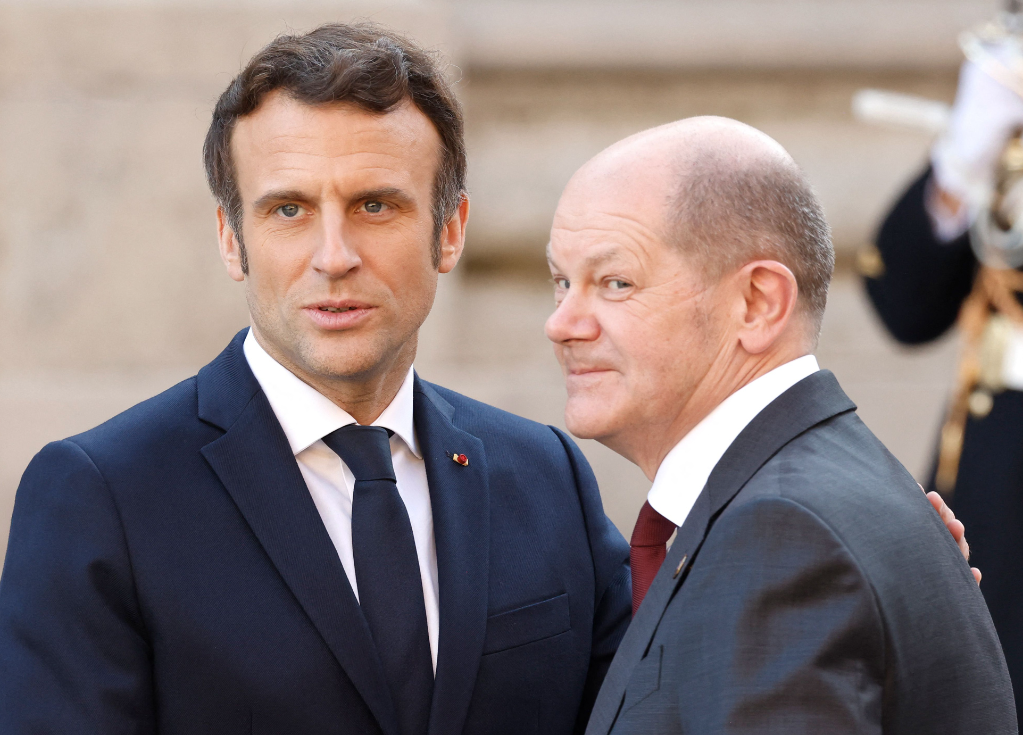
After a decade of failed negotiations facilitated by Brussels, Germany and France took an active role in the dialogue between Serbia and Kosovo, with the apparent goal of pressuring Belgrade and Pristina to reach a final agreement, if possible, in the coming months.
German Chancellor Olaf Scholz and French President Emmanuel Macron tasked their advisers for foreign and security policy, Germany’s Jens Plettner and France’s Emmanuel Bonn, “to provide direct support to Miroslav Lajcak in his efforts.” Lajcak is tasked by the EU to mediate between Kosovo and Serbia and to facilitate the dialogue. Both Serbian President Aleksandar Vucic and Kosovo Prime Minister Albin Kurti were informed of the appointment of the German and French envoys at the beginning of September. In a letter, Scholz and Macron noted that European Union and the Balkans, in the light of the Russian aggression against Ukraine, are “at a moment of crucial importance for security” and “stability.”
“The full normalisation of relations between Kosovo and Serbia is of essential importance for the Western Balkans,” Germany and France said, asking both Vucic and Kurti to “show maximum determination and readiness to make difficult decisions, which lead to progress in the dialogue between Kosovo and Serbia, under the auspices of the EU.” “Recent tensions have shown that constructive steps forward are urgently needed, both on a practical and a political level,” Scholz and Macron added.
“The representatives of the most powerful European countries, who told us they also have the support of the United States and Turkey, consider that given there is already a war in Europe there is no need for new conflicts and it is important to reach a solution as quickly as possible”, Vucic confirmed after meeting the two envoys in Belgrade. Vucic suggested that the solution proposed by Berlin and France would include “the recognition” of what the West “considers as reality”, i.e., the independence of Kosovo. Serbia has repeatedly stated that Belgrade will never recognise Pristina’s independence. Meanwhile, tensions continue to simmer in the Serb-majority north of Kosovo over reciprocal measures on car plates laid down by Prime Minister Albin Kurti.
Vucic also mentioned the existence of a “new framework” for the dialogue with Pristina, proposed by Germany and France, without further elaborating. However, a document leaked by Albanian media in September suggested the scenario of Serbia and Kosovo agreeing on a long-term plan for the normalization of their relations. The unofficial document suggested the idea of two Germanies-alike solution, with both parties normalizing their relations, without official mutual recognition. After a first agreement, by mid-2023, Serbia would de facto recognize the existence of Kosovo, without a formal recognition. On the other hand, Kosovo would be recognized by the five EU members still not accepting its independence, paving the way in the next decade to the entry of Pristina in several international organizations, such as Interpol, Unesco and the Council of Europe. In exchange, Serbia would get significant economic assistance from the EU. After ten years, the initial agreement would be reassessed and only after a formal mutual recognition both countries will have the doors to the EU membership open.
Although the leaked proposal remains unofficial and its existence was denied by the EU and other actors, the framework doesn’t look unrealistic. West and East Germany never recognized each other” but “both were equal members of the international community,” said German diplomat Wolfgang Ischinger, among the first in 2007 to put on the table the two-Germanies model as a viable solution for the Kosovo issue. It remains to be seen how Serbia and Kosovo will act in the next months, but the fact that Germany and France got directly involved in the dialogue suggests that the Kosovo issue is now one of the top priorities in Europe.
Further News and Views
TurkStream pipeline operator loses license
Sources: Reuters, BNE Intellinews, OilPrice
The Russian-owned operator of the TurkStream gas pipeline, which also supplies gas to the Balkans, said its export license was revoked in Europe due to additional European sanctions against Moscow, but it will continue gas transportation and has requested the license be restored. Russia and Turkey officially launched TurkStream in 2020. The pipeline allows Moscow to bypass Ukraine as a transit route to Europe. It carries Russian natural gas to southern Europe, the Balkans and Hungary through the Black Sea and Turkey. Moscow contended also that Western sanctions prevented the maintenance of the pipeline.
Kosovo confirms PM Kurti was target of an assassination plot
Sources: Prishtina Insight, Euronews, Argumentum
Kosovo’s government confirmed it foiled a plot to assassinate Prime Minister Albin Kurti in 2021. The government said that Kosovo’s intelligence agency informed Kurti about the alleged plot and “security institutions prevented this action.” Local media reported that the killing was planned by unknown people to destabilize Kosovo and the region. Tirana’s A2 TV reported that Iranian hackers leaked the plot online.
EU - NATO
US military interested in major Balkan port Alexandroupoli
Sources: Kathimerini, Hurriyet, TRT World
The US military is interested in deepening and expanding the Greek port of Alexandroupolis, one of the most important in the Balkans, also for hosting US Arleigh Burke-class destroyers, which are outfitted with guided missiles and electronic warfare capabilities. The port is already being used to transport military equipment to Central and Eastern Europe. However, in the event of a new crisis in the Balkan and Black Sea regions, as well as between Greece and Turkey, Alexandroupoli may become strategically even more important. The interest in the Greek port, which is also becoming an LNG hub, reflects the United States’ increased involvement in the region, particularly in neighboring Albania.
ECONOMICS
Balkan countries agree to share food and energy in winter
Sources: Reuters, Euractiv, Tanjug
Serbia, Albania, and North Macedonia, all supporters of the so-called Open Balkan Initiative, have agreed to form a joint commission to assist each other in dealing with the threat of energy and food shortages this winter due to ongoing crises in Ukraine. North Macedonia is reliant on fossil fuels and hydropower, and it also imports electricity. The majority of Albania’s electricity is generated by hydropower plants. Serbia, which has a strong agricultural sector, relies almost entirely on Russian gas imports and generates roughly 70% of its electricity needs from ageing coal-fired power plants. The three countries also pledge EU assistance, warning the EU not to “repeat the shameful behavior from the (COVID-19) pandemic, when western Balkan countries had to turn to China, Russia, and Turkey.”

Stefano Giantin
Journalist based in the Balkans since 2005, he covers Central- and Eastern Europe for a wide range of media outlets, including the Italian national news agency ANSA, and the dailies La Stampa and Il Piccolo.

